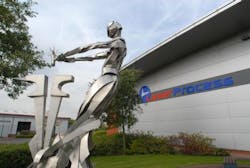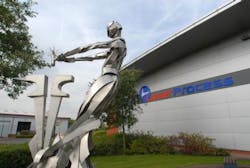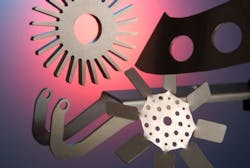Milestone approaches for UK laser cutter
Cannock, Staffordshire, England - It seems hardly credible but at the end of this year, Laser Process Ltd. will have been providing laser cutting services to UK manufacturers for 25 years.
Related: It's the same the world over
1990 was the year when Saddam Hussein invaded Kuwait, the US and the UK invaded Iraq, Nelson Mandela was released from prison, and the UK was battling with Poll tax rioters. Quite an eventful year—all this and Laser Process, too.
Ever since day one, the company has been a leader in the industry and has grown to be one of the biggest. They operate six Trumpf laser cutters ranging in power from 4 to 6kW and a Trumpf laser marker. In 1995, they were a founding member of the Association of Industrial Laser Users (AILU); in 1999, they became accredited to BS 9001 for quality management.
They have always taken customer relationships seriously—to the extent where they class customers as friends with a commitment to ensure that they do all to help them flourish. Thus many customers who have been with the company since the beginning.
Technology has progressed substantially over the years and Laser Process has always invested in the latest machinery to ensure they are able to offer the best possible service to customers. Compared to the machines available when they started, those of today are bigger, more powerful, and faster, and the cut quality is better.
Over the years, they have added processes to compliment laser cutting. Many years ago they introduced press brakes in order to supply customers with plates that were bent after cutting, saving them from having to find a second supplier to complete their requirements. Since then, they have introduced a vertical machining center to offer drilling and milling operations. And they now also offer welding and assembly services.
Laser Process can, and do, supply anyone who has a requirement for steel or aluminum profiles in whatever industry they are related to. One their largest biggest contracts was to supply over 250 steel statues to a national charity—not a source of work that would readily spring to mind.
As for the future, Laser Process seems to be in a situation where there is a significant improvement in manufacturing since the crash of 2008, and there is a promise of substantial investment in infrastructure—particularly in rail—of which they will take advantage.


